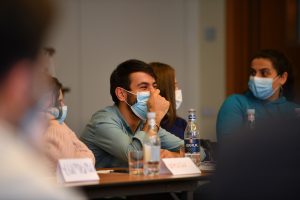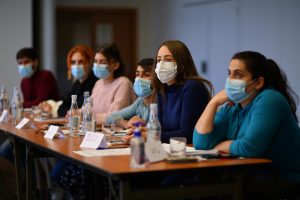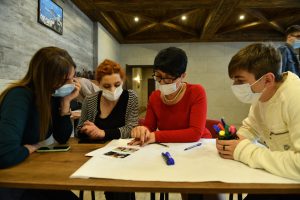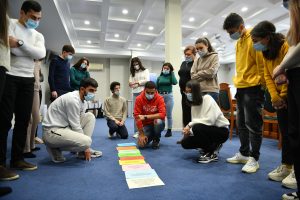Ten two-day electoral schools, organized by UNDP in Armenia within the Electoral Support Project in Armenia (ESPA-3), were held in several regions of Armenia։ Aragatsotn, Armavir, Kotayk, Lori, Shirak, Tavush, and Vayots Dzor during October- November 2021. The schools aimed to educate Armenian citizens on electoral issues and raise voters’ awareness ahead of the local elections in Armenia.
Within Electoral Schools, the participants were trained to exercise their electoral rights, effectively contribute to the local decision-making. The training course covered all the legislation’s key aspects that establish the procedure for conducting national and local elections and its practical usage. Particular attention was paid to the ways in which the electoral laws, rules, and procedures impact the ability of women and men, youth, national minorities, people with disabilities, other underrepresented groups to participate in elections and the political process. Participants of the course became familiar with different electoral systems, election administration procedures, stakeholders of the electoral process, and their role to ensure gender equality in elections, campaign regulations, election financing, and effective exercise of passive and active electoral rights. Special attention was given to international standards and best international practices on electoral matters.
Consequently, the Schools ignited great interest, which was reflected in the contrasting backgrounds of 170 participants who attended, and the activeness shown by them during the program. The Schools were held interactively, with discussions and practical tasks, like mock elections, making the whole theoretical part of the course easily understandable, and more interesting, providing opportunities for building effective partnerships for advocacy campaigns.
One of the participants has acknowledged: “First of all, the biggest plus for me was that it [electoral school] had a theoretical and practical part, and somehow it was experimental. We had the opportunity to implement our ideas differently, which helped us remember the [material]. It was a discovery that an election is a humanitarian act, a unifying institution, and on that day, the isolated layers of the society feel like full members.”




